 Orders handed down by courts presiding over novel intellectual property cases routinely convey clear instructions, regardless of underlying complexity. With no room for misinterpretation, everyone knows where they stand and what the court expects of them.
Orders handed down by courts presiding over novel intellectual property cases routinely convey clear instructions, regardless of underlying complexity. With no room for misinterpretation, everyone knows where they stand and what the court expects of them.
Such clarity can also be a plus outside court too, at least when orders are made available to the public. When originating applications or complaints are also made available for scrutiny, that allows most interested parties to take in the facts and draw reasonable conclusions.
When it first emerged last week that a court in Barcelona had issued an order to help Spain’s LaLiga fight TV piracy, the order itself hadn’t been seen in public. The originating application still hasn’t. An unsourced statement in the article that broke the news appeared to send people in the wrong direction, and a general reluctance by those familiar with the facts to actually share some, sealed the deal.
A Mostly Accurate Report, One Pivotal Claim
 As far as we can determine,
El País broke the story
after gaining access to the court order handed down by a Barcelona court in February.
As far as we can determine,
El País broke the story
after gaining access to the court order handed down by a Barcelona court in February.
In almost all respects, the article accurately reports the information contained in the order. The problems appear when information that doesn’t appear in the order is presented as fact leading in. Specifically, that the court had granted LaLiga permission to target “private users who consume protected audiovisual content through IPTV.”
The source of that statement wasn’t mentioned in the article but assumptions that the claim was true ignited widespread misinterpretations concerning the nature of the case.
El País used the claim in the headline of the article and from there, stories stating that LaLiga would be targeting regular IPTV viewers with fines, spread like wildfire.
A single statement with the potential to affect thousands

That prompted an
official statement
from the Superior Court of Justice of Catalonia (TSJ-Cataluna) which attempted to set the record straight.
The statement confirmed that the case isn’t about pirate IPTV services. It relates to a specific type of piracy known as card-sharing and the ISPs in this matter are only required to hand over the details of individuals who profit from illicit content, the
statement added
.
People who simply view content without paying for it are not affected, TSJ-Cataluna stressed.
LaLiga Responds via an ‘Information Notice’ and Social Media
The ‘Information Notice’ published by LaLiga doesn’t directly challenge the TSJ-Cataluna statement but describes it as an “
interpretation
” of the order handed down by Commercial Court no.8 of Barcelona.
President of LaLiga, Javier Tebas Medrano, posted something similar on X, without any useful context that might help anyone understand why the facts, whatever they might be, seem to be in public dispute. Through the sharing of just a few lines of text, however, LaLiga mentioned details of the authorization it had obtained from the court, but left the backstory wide open to speculation.
According to LaLiga, it will provide Spain’s ISPs with the IP addresses of servers that “transmit illegal content.” Again, the lack of clarity doesn’t help people to understand what “illegal content” means, but those who reasonably concluded that meant “pirated LaLiga football streams,” were incorrect.
Card-Sharing Piracy is Not IPTV, But it is Illegal
The servers mentioned by LaLiga grant access to a card-sharing piracy system. Our earlier report has a
more detailed explanation
of what that entails but here, even the Superior Court of Justice statement struggles to offer a suitable definition that doesn’t imply the distribution of audiovisual content.
“Cardsharing is a practice by which legitimate users re-broadcast the signal to certain ‘pirate’ networks in which all participants, including those who only defraud the quota, use decoders,” it reads.
To be clear, these servers supply codes, not audiovisual content. No video, no audio, no streams; those are transmitted via satellite. The codes that are shared via these servers allow people to decrypt the channels transmitted by the satellite, and technicalities aside, that’s pretty much it
(detailed description at the end of this article)
.
While some have suggested these services operate in a gray area, distributing the codes and using the codes to obtain subscription TV without paying for it is illegal in the EU.
Yet when LaLiga’s president was asked during a
Movistar Plus+ interview
to clarify the nature of the IP addresses and servers the league is targeting, he responded: “Those IP addresses, which LaLiga is going to provide [to the ISPs], are obviously IP addresses where football and other content is being broadcast, but above all LaLiga football, absolutely free. Well, free. Sometimes, there’s a charge.”
Again, implying that LaLiga audiovisual content is being broadcast from these servers only adds to the IPTV-related confusion. Of course, the end result is still people watching premium content illegally. However, this is not about pirate IPTV services, and even in this interview, that wasn’t made clear, and it still isn’t being made clear now.
At this point clarity becomes even more important. As currently written, the mechanism outlined in the court order is likely to have privacy implications for every internet user in Spain. When compared to the problem they purport to solve, the provisions in the order seem significantly disproportionate.
Surveillance By Proxy
In basic terms, LaLiga has identified servers offering services that allow people to decode satellite signals of LaLiga matches. For argument’s sake, let’s equate a server with a pirate site, a famous pirate site called The Pirate Bay. What LaLiga has apparently been given permission to do is contact ISPs with a list of server IP addresses previously collected, and say: “Please go through your files and identify every subscriber who visited a site called The Pirate Bay, server 123xyz etc.”
Once the ISPs have made a list of customers who accessed those servers, it seems they’ll package up almost everything they have on file for those customers and send that personal data, which is protected under both local and EU data protection laws, over to LaLiga for further action. According to LaLiga’s president, the users identified won’t be ‘fined’ but they could receive claims for damages.
It’s worth repeating: LaLiga supplies evidence to the ISPs that outlines suspected infringement by
server operators
, not the ISPs’ subscribers. By proxy, however, LaLiga appears to gain access to the ISPs’ logs to identify suspected historical infringement, by trawling the logged activities of
all ISP customers
, across every major ISP, to determine who – if anyone – accessed those servers.
Legal Basis For Gaining Access to ISP Subscriber Data
The order of the Barcelona court cites
256.1.11 LEC
(Civil Procedure Law) as the mechanism through which ISPs can be compelled to cooperate
(translation below)
.
Through the request, formulated by the owner of an intellectual property right who intends to exercise an action for infringement thereof, that an information society service provider provide the necessary data to carry out the identification of a user of their services, with whom they maintain or have maintained in the last twelve months relations for the provision of a service, with which there are reasonable indications that they are making available or disseminating, directly or indirectly, content, works or benefits subject to such right without the requirements established by intellectual property legislation are met, and through acts that cannot be considered carried out by mere end consumers in good faith and without the intention of obtaining economic or commercial benefits, having taken into account the appreciable volume of unauthorized protected works and loans made available or disseminated.
At this point a conflict emerges. LaLiga seems to want the whole country to understand that through this action, it will target
users
of pirate servers, but prefers not to state the nature of the piracy system with any clarity.
The TSJ-Cataluna statement says no, end users will not be targeted: “[T]he basis for agreeing to the requested preliminary diligence, can only be carried out against the ‘cardsharers’ who re-spread the signal and profit from it, and
not against mere end users
.”
This controversy is being fueled by confusion and here it appears there’s also a dispute over what constitutes a ‘user’ of a card-sharing service.
On one hand, the term ‘user’ is useful for LaLiga’s deterrent messaging because ‘user’ is widely understood to mean ordinary people, albeit those consuming pirated content. These are the people causing the overwhelming majority of LaLiga’s problems and when they believe the sky is falling, that’s a plus for LaLiga.
The problem is that the TSJ-Cataluna statement insists that regular users are not the targets here. Yet as far as we can see from the information available, LaLiga’s position is the one that receives direct support in the text of the court order.
(order in Spanish, translation below)
A public dispute over what does and does not constitute a user who can be pursued isn’t the best start, and seems unlikely to improve later. Even if ISPs successfully match the server IP addresses with some of their subscribers, how will it be possible to differentiate between those who profited and those who did not? Indeed, will that decision fall at the feet of the ISPs or will LaLiga make that determination?
Perhaps even more digging around in ISP logs for circumstantial contacts with other servers belonging to PayPal might help, or those held by Mastercard or Visa? Perhaps the Santander bank will need to scan all of its customers’ bank accounts for payments, just in case someone happened to make a payment to a server on a particular day? With IP addresses in hand, those can be compared with ISP subscriber logs perhaps?
Of course, banks aren’t going to roll over so easily, but the bigger question is why Spain’s ISPs aren’t concerned by where this could eventually lead if taken to its logical conclusion.
ISP Defendants Have a Vested Interest
This matter is still ongoing, so the ISPs still have time to show their hands. However, the financial elephant in the room has gravity all of its own.
This January, Telefonica retained the rights to air LaLiga matches until end of the 2026/27 season in a €1.29bn deal. The games will air on Movistar Plus+, a subscription TV platform owned by Telefónica whose illegally decoded satellite signals lie at the heart of this legal action.
Last July, Orange Spain reached agreement with Movistar and DAZN to share LaLiga TV rights. Vodafone
has a deal
to show LaLiga matches,
likewise MásMóvil
and Digi
.
There’s no question that the legal rules and regulations will be followed to the letter. However, the existence of these deals may at least dampen enthusiasm for any meaningful opposition to a request for subscriber data that goes well beyond what has gone before.
An Information Vacuum Fills Itself
Finally, legal technicalities aside and when viewed as a whole, if this matter had been portrayed from the beginning as strictly targeting, for example, commercial resellers of card-sharing subscriptions, the opposition and animosity of the last week could’ve been mostly avoided. Some people would’ve still argued against granting LaLiga authority to chase down commercial pirates, but overall interest would’ve been significantly lower.
Instead, whether by design, mistake, or merely by coincidence, the apparently erroneous focus on IPTV and the man in the street delivered nothing of value and may even have set relations back.
Given the choice, people prefer buying from friends, only when forced will they reluctantly buy from perceived enemies. As a basis for a business relationship, only A is sustainable, while repeatedly burned bridges – no matter who burns them – become less and less attractive to cross.
The original order in Spanish is available
here
(pdf). An OCR’d, translated and mostly tidied version is available
here
(pdf) purely for reference purposes, since it may contain errors.
Further detail on card-sharing: Legal TV signals are encrypted using keys known as Control Words (CW). If a TV set-top box doesn’t receive a regular supply of CW through the system, the box won’t be able to decrypt the signal and viewers will be unable to watch TV. The CWs themselves are sent to set-top boxes in encrypted packages (ECM) which are decrypted by the viewing card using other keys that determine whether the subscriber has standing to view the channel.
In an illegal system, ECM packages containing the Control Words (CW) are sent via satellite to the pirate’s set-top box, which forwards the ECM over the internet to an Internet Key Sharing server (IKS). The IKS forwards the ECM to a card reader containing a real viewing card which does its work and returns the decoded CW to the IKS, which in turn sends the decoded CWs to the pirate set-top box, where they are used to decrypt the satellite signal.
From:
TF
, for the latest news on copyright battles, piracy and more.
chevron_right
 Way back in 2010, Dutch anti-piracy group BREIN embarked on a mission to have The Pirate Bay blocked in the Netherlands.
Way back in 2010, Dutch anti-piracy group BREIN embarked on a mission to have The Pirate Bay blocked in the Netherlands.
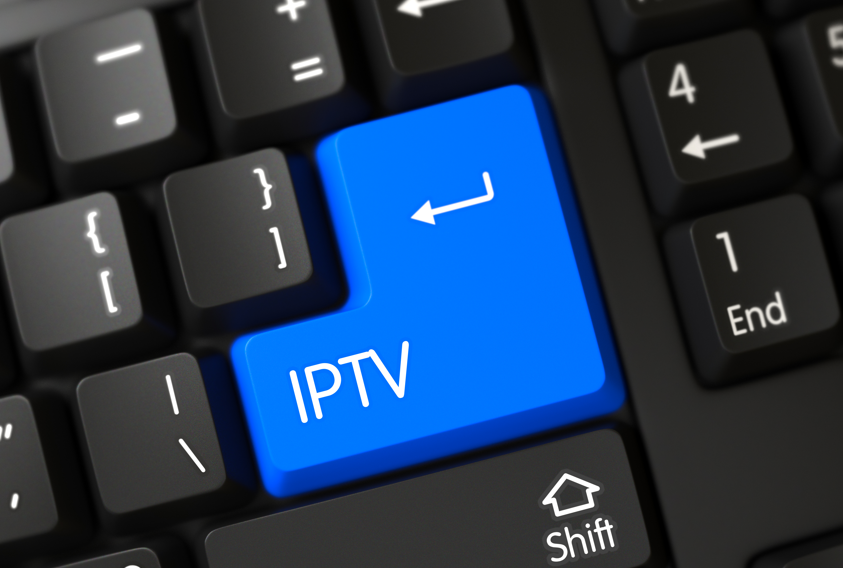
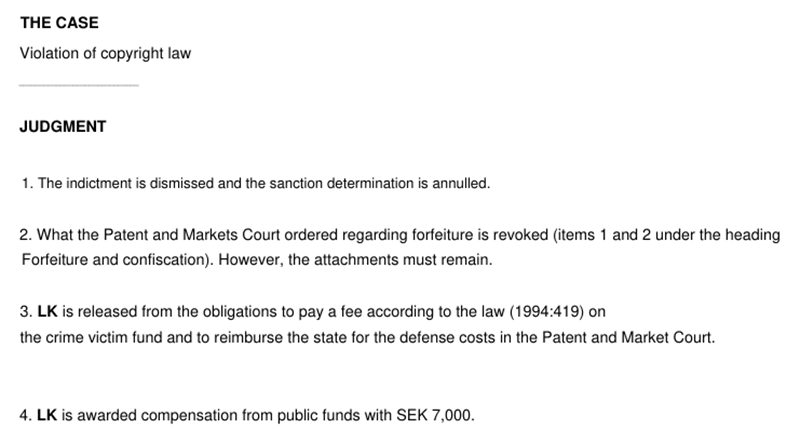


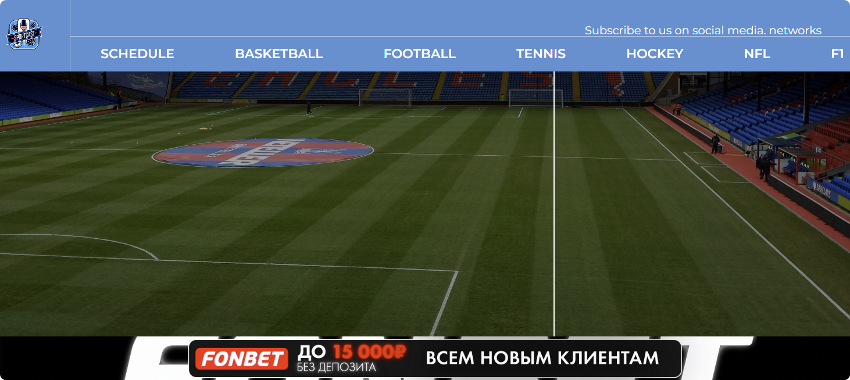
 Operating a pirate IPTV service can be a dangerous endeavor, no matter where one’s located. In the United States, home to Hollywood and other major entertainment outfits, the risks are arguably even higher.
Operating a pirate IPTV service can be a dangerous endeavor, no matter where one’s located. In the United States, home to Hollywood and other major entertainment outfits, the risks are arguably even higher.
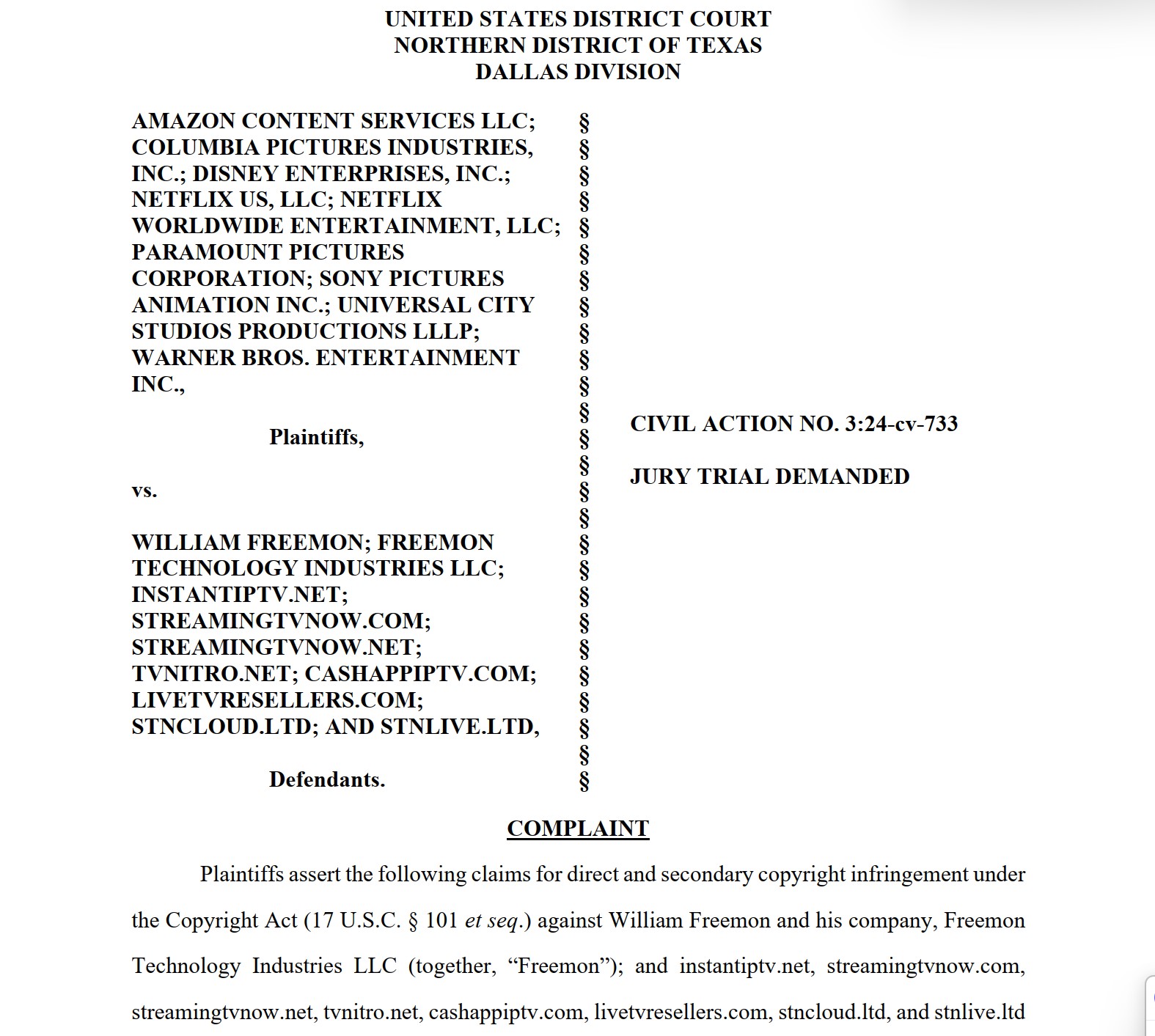

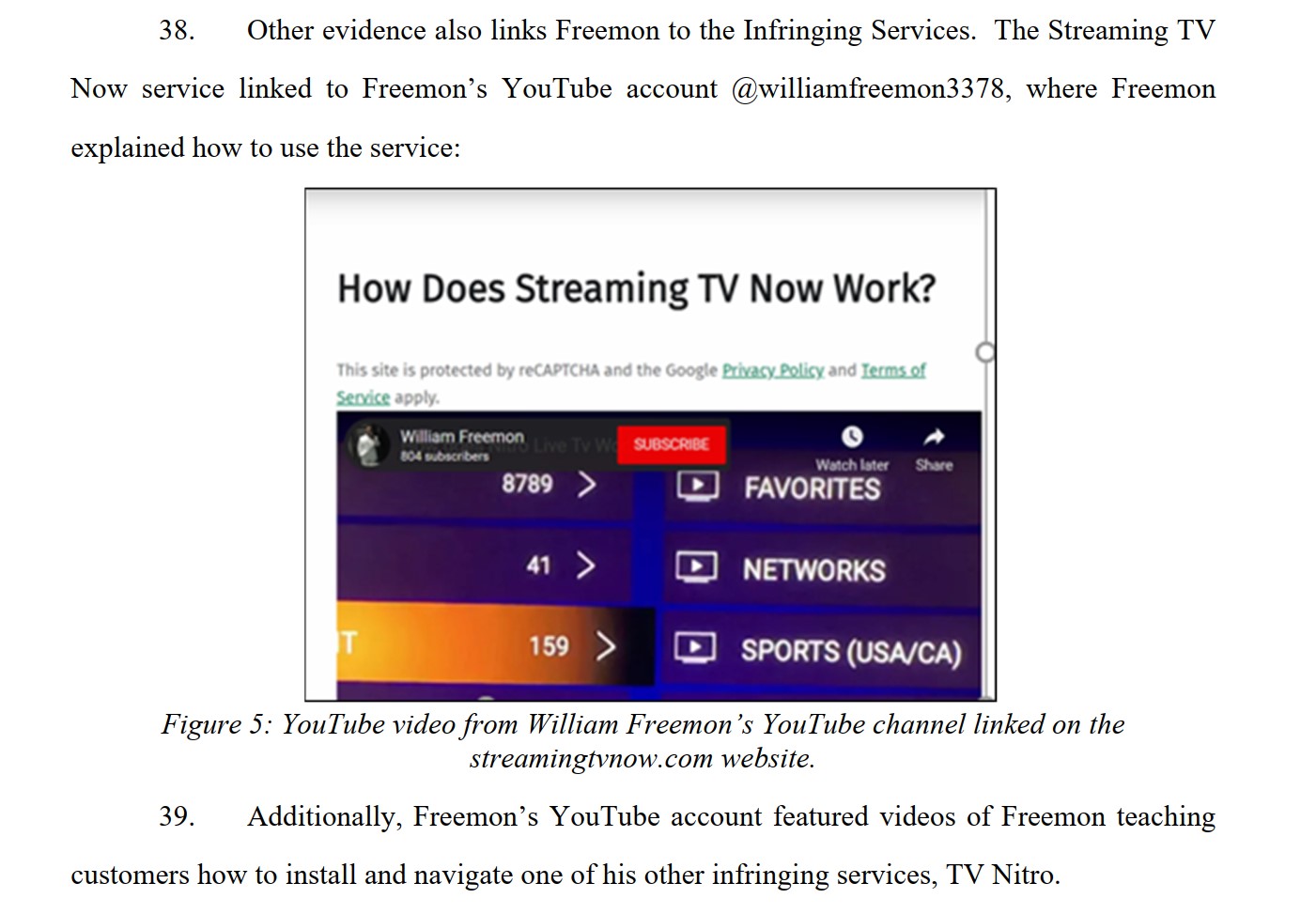
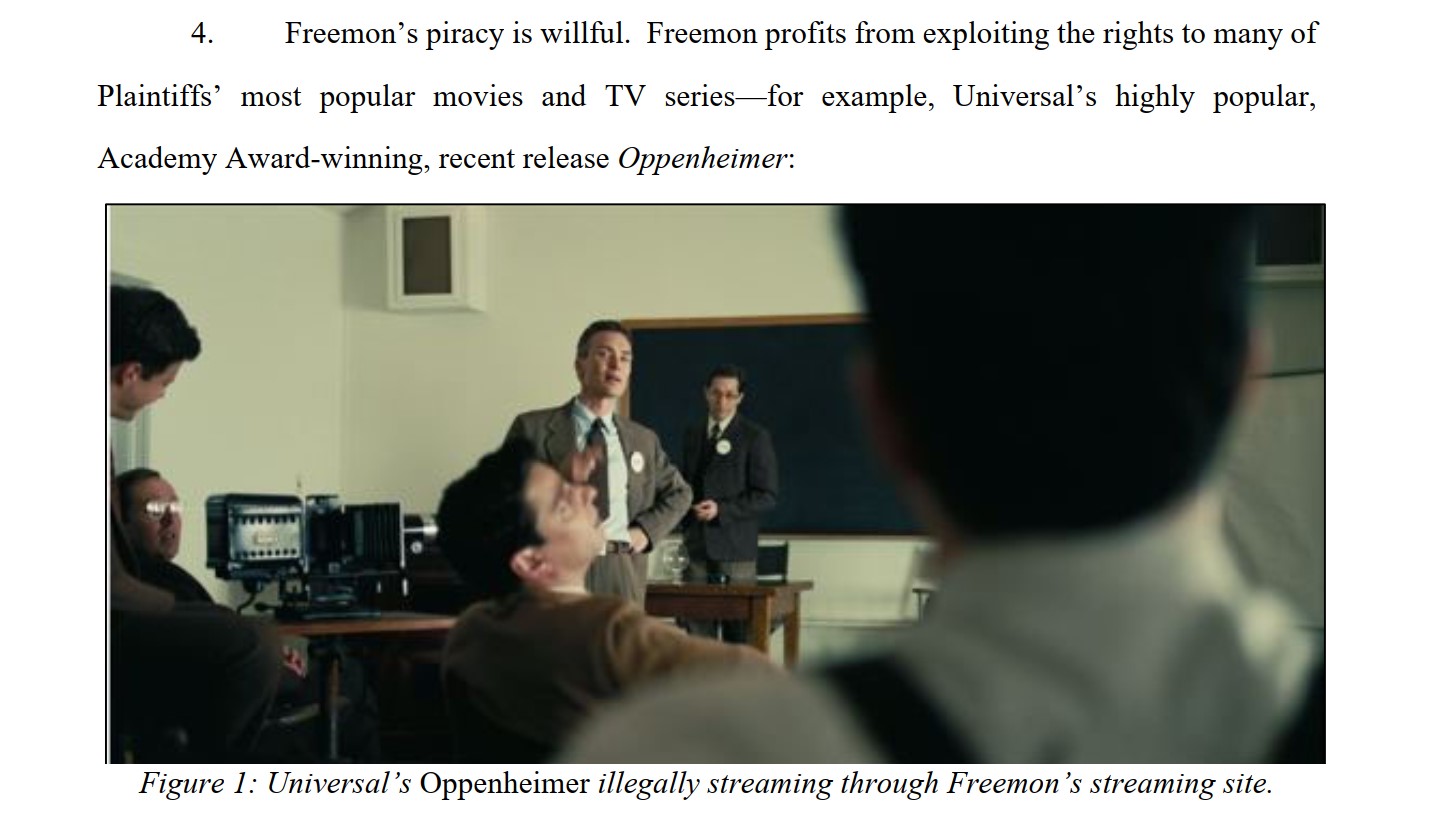


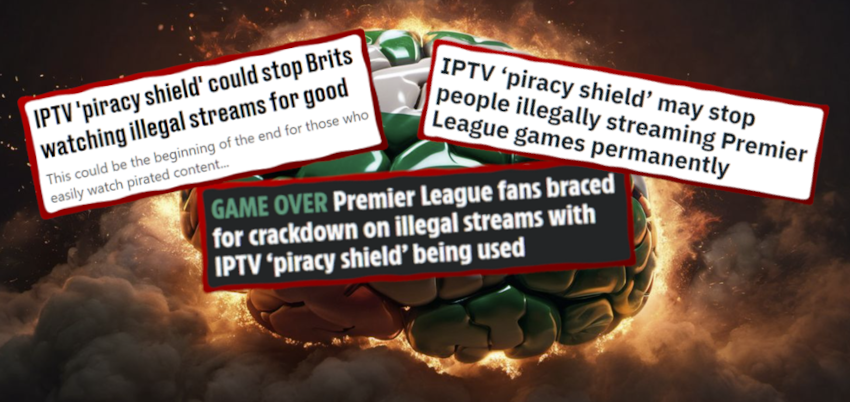


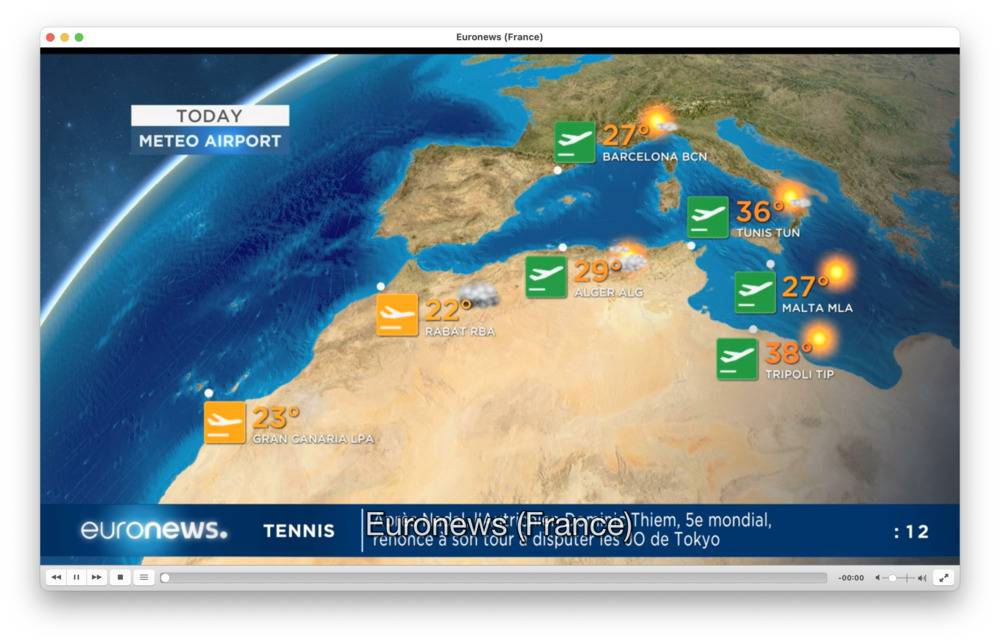
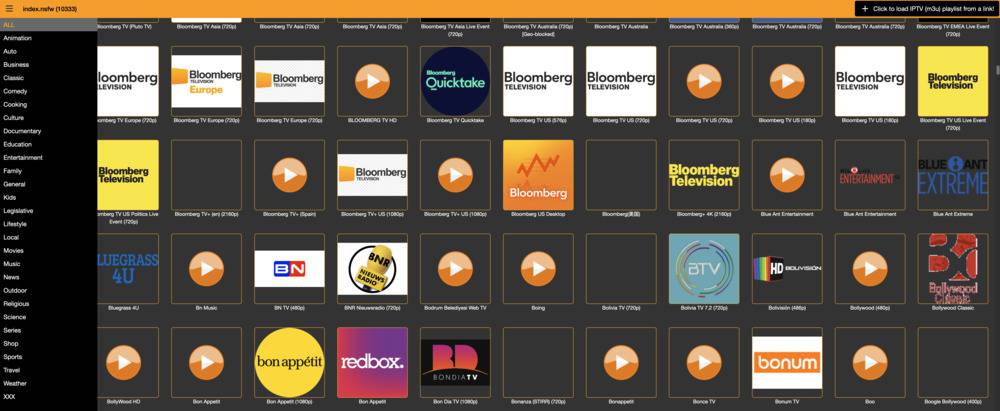





 Note for those who ‘know it all, fines will never do it’: an agreement was revealed yesterday between [Guardia di Finanza] and the Prosecutor’s Office in Rome to facilitate the identification of users,” Capitanio wrote.
Note for those who ‘know it all, fines will never do it’: an agreement was revealed yesterday between [Guardia di Finanza] and the Prosecutor’s Office in Rome to facilitate the identification of users,” Capitanio wrote.





